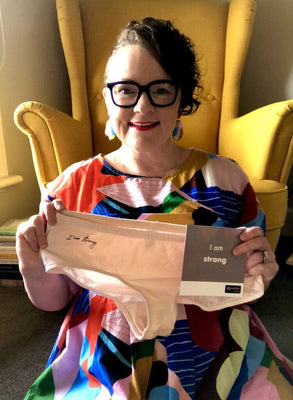Sarah lost herself after the birth of her second child. Months later, her GP confirmed that she was experiencing post-natal depression. Physical programs in rural Victoria were limited, so she found solace in online communities. What she never expected was to create one of her own.
Sarah’s second child was born just before her husband started dairy farming. Her husband needed to keep working which would leave her alone in motherhood and isolation. After a few months, feelings of unease began to intensify. “My husband was out working on the farm all the time,” Sarah recalls, “I was lonely, overwhelmed and exhausted, I wasn’t enjoying motherhood the way I thought I was supposed to.”
Feelings of doubt, sadness and fatigue snowballed until they led Sarah to her breaking point. “There was a particular night I remember crying uncontrollably in the kitchen pantry and telling my husband that I just couldn’t do this anymore, that I felt like I was drowning in motherhood,” Sarah says. Her GP diagnosed her with post-natal depression the next day. The diagnosis gave her clarity, and the mental health care plan that they started together was the first step in her healing process.
Things started to change for the better after she sought help, something that she hopes will lose its stigma for mothers. “It’s ok to speak up, it’s ok to say you can’t do it anymore, it’s ok to ask for help, you don’t need to suffer through it alone,” she says.
Though she was physically isolated, online communities helped Sarah realise that she wasn’t alone. She joined ‘Happy Mama’, an online course and community by mindfulness coach Amy Taylor-Kabbaz designed to support struggling mothers. It was here that Sarah felt liberated by connection, even if it was digital. “It was this community of women that helped me to see I was not alone, that I wasn’t the only person feeling this way and that was the most powerful thing ever.”
Sarah held onto these feelings of empowerment by writing down motivational quotes and placing them on her fridge. She was still a busy mother, but catching a glimpse of these words helped shift her mindset, get motivated and stay positive.
This was the genesis of Affirmation Farm. Sarah had never used affirmations before and was amazed at how effective they were. She shared some affirmations with the Happy Mama community and loved that her words were helping so many community members. Sarah was inspired by this response and wanted to reach even more people with her affirmations.
She taught herself how to use a graphic design program to create beautiful cards; printed them professionally; found perfect packaging; set up an Etsy store to sell and, learned how to market her cards so that she could spread her message of support to as many people as possible.
The response was positive, but she really started to connect once she shared her own journey. “It took me about six months… to actually come out and say that I had PND and that that was the motivation behind starting Affirmation Farm,” says Sarah. But her risk was rewarded when other women began to reach out with stories of how her affirmations helped them.
It’s the connections that she’s made in her own community that continues to serve her. “[It has] been such an integral part of my healing… knowing that I am helping other people… Because I’ve come out the other side, out of the darkness and into the light, living life in full colour and it’s fabulous.”
The response to Affirmation Farm has cemented her belief in the power of connection. This is something that she is trying to instil in her daughters, who helped her create affirmations for kids. “I know how important it is for females to have strong friendships… that sense of belonging, kinship, sisterhood,” says Sarah. When it comes to motherhood, Sarah is living proof that it takes a village, even if it is virtual, and she hopes that her story can help other mothers come to the same realisation.
Through her platforms, Sarah hopes to continue to build these villages and tear down harmful misconceptions of motherhood. Her message to struggling mothers is clear, “there is an element of feeling like a failure when you have postnatal depression, that you should be loving every moment of being a mother and that’s just not realistic… it’s ok to find motherhood difficult, it’s ok if it’s not [what] you expected it would be, there’s no shame in feeling this way.”
Her approach to motherhood and life comes from an understanding that it comes with hardships, but that it’s possible to make it though. “That period of my life felt very lonely and isolating and if I can help other people going through something like that then that’s the best thing.”
It’s fitting then, that Sarah’s Powerpants affirmation is “I Am Rising.” “It’s my favourite affirmation because that’s what I feel like I am doing, rising from the difficulties and coming up strong.”
It's ok to find motherhood difficult

